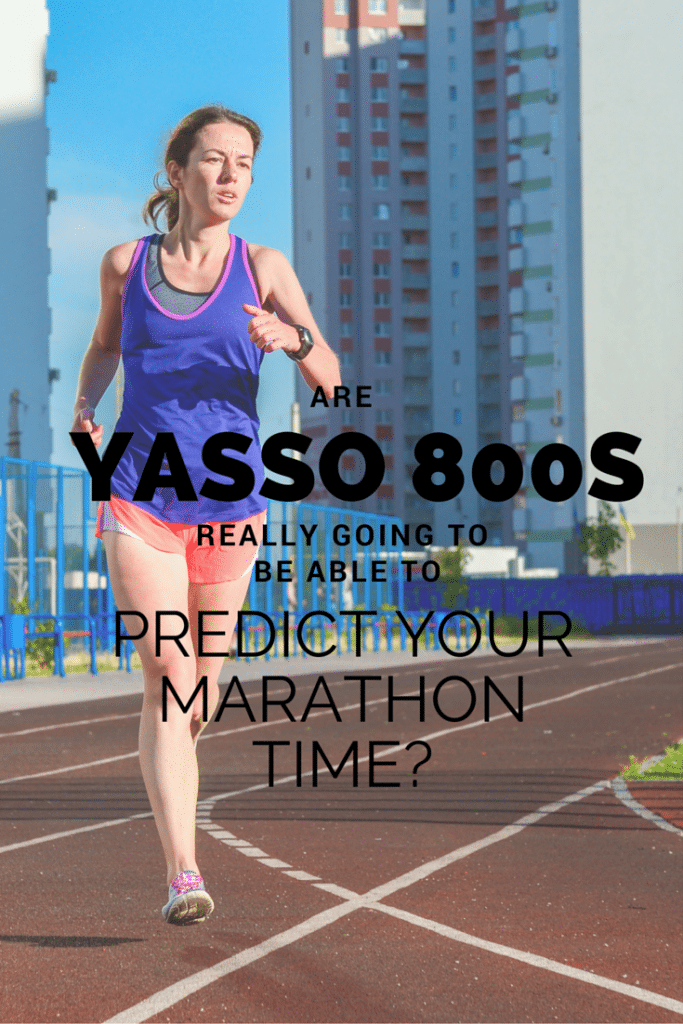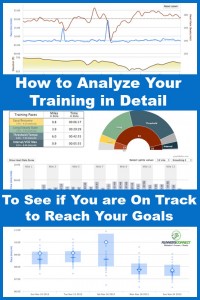 I’m always on the lookout for interesting training topics and discussions.
I’m always on the lookout for interesting training topics and discussions.
A few years ago, I assigned one of my athletes, Jordan Kinley, a workout consisting of 10 x 800 meters with 30 seconds rest. Jordan had a great workout, despite the limited rest, and came away from the session with confidence in his fitness.
Most runners are somewhat familiar with the term Yasso 800’s, which predicts marathon finishing time from a session of 10 x 800 meters with equal time rest between each 800.
Jordan posed a very interesting question for discussion on his blog and I thought I would include the discussion in this article, that way, if any readers want to comment from here, they could do so.
Jordan’s reflection:
“I’m not exactly sure what this workout says about my marathon potential. To be honest, running 2:22 to 2:25 isn’t that hard in terms of getting the legs to turnover. I’ve always questioned the Yasso 800 predictor workout and find it hard to believe that it works beyond a certain time. Could Geb, Wanjiru or Hall go out and run 2:05s with 2 mins rest for 10 x 800? I’m not sure, but probably. Where does the predictor fall short? How do you get it back on track? Could Geb, Wanjiru or Hall run 10 x 800 in 2:05 w/ 30 secs rest? Who knows. Regardless, an athlete knows when he/she has run a quality workout and that is all that is necessary for boosting their confidence going into a race.”
My first response:
Jordan, you raise a very interesting question in your analysis of the workout. I’ve met Bart Yasso once and had the pleasure of speaking to him in-depth about the “Yasso 800’s”.
What I found interesting was the reasoning behind his prediction model of Yasso 800’s and marathon finishing time.
Specifically, there was no scientific data that showed, physiologically, why the Yasso 800’s would be a predictor of marathon time.
Instead, he just noticed that in most of the runners he had coached over the years, there was a correlation between the workout and marathon finishing time.
Here’s the deal:
It is important to remember that correlation and causation are two different things and that one does not cause the other.
This is the real basis behind quantitative research methods. Often times we find that there is a high correlation between all kinds of unexpected variables.
Listen to this:
For example, a study confirmed that that the total US highway fatality rate perfectly correlates to the number of fresh lemons imported from Mexico (full study here). Does this mean that the number of lemons imported from Mexico is causing highway fatalities? I doubt it, but there is certainly a correlation.
Do Yasso 800s Actually Help Prepare us for the Marathon?
Getting back to the Yasso 800’s and their prediction of marathon finishing times.
What is important to remember about training is that the focus should be on the physiological progression and adaptation we’re trying to induce by running a particular workout.
Specifically, how that workout addresses the physiological challenges of a race. Like we’ve discussed, the real issue with the marathon is fuel; the total amount consumed and the efficiency at which your body uses your available stores.
Now:
The Yasso 800’s strike me as a VO2 max type of workout because they contain an equal amount of rest between intervals, which would suggest that you are fully recovered before starting the next repeat.
From my limited “lab work” understanding of VO2 max, an increase in VO2max is not correlated with an increase in fuel consumption efficiency.
That’s not to say that VO2 max workouts don’t have their place in marathon training. (I do think that VO2 max increases your level of fitness and the speed at which you can run, which would in turn make running at marathon pace “easier”).
Could Yasso 800s be a better predictor for some runners than others?
I will admit that the Yasso 800’s may also be a better predictor for an “average” runners fitness than an elite or very good marathoner’s fitness because VO2 max pace for 800 meters of most 3:30 to 5 hour marathoners is probably very close to 4 minutes for an 800, give or take.
Whereas the best elites in the world have a VO2 max 800 meter pace closer to 2:00 – maybe faster, I really don’t know
What is inherently difficult about predicting marathon fitness from workouts is this issue of fuel. It is very difficult to simulate the last 10k of a marathon in training.
Like we discussed, in a marathon cycle, a better prediction of marathon success is looking at the training from a macro perspective.
While I won’t draw any conclusions about your fitness from that one workout, the total amount of work you’ve put in over the last 4-5 weeks has been tremendous.
As you know from looking at the training, the real bread and butter is in the marathon specific stuff you’ll be doing in the next 3 or 4 weeks; especially the long stuff where we specifically target the fuel issue.
This is just my opinion on the topic, and I welcome discussion. I am not saying these VO2 Max Yasso 800s are totally worthless. Like I mentioned above, they certainly have a time and place, but as a predictor of your future marathon time, is it not just better to allow race day to tell you that, and instead focus on getting in the workouts to get you ready for the day itself?







One Response
Great stuff Jeffrey.I’ve always wondered about the Yasso 800 workout as a predictor because it doesn’t take into consideration the athlete’s profile. For instance, I’m coming from a middle distance background where splitting 60 seconds for 400 meters isn’t that difficult. Running 800s in 2:22 – 2:25 also isn’t that difficult when the legs could once go through 800 meters of a mile in close to 2:00 flat.What this means is that for some runners, those who are accustomed to running much faster shouldn’t have a problem splitting an 800 that is close to 20 seconds off a once obtainable pace. Of course, the 30 seconds rest makes the workout a challenge.However, if I were a more strength oriented running and not coming from a middle distance background, I think that the Yasso 800 would be more accurate. This is why I think Bart has found un-scientifically that the model works well for marathoners who are relatively new to the sport.Granted the concern of fuel is an integral element of marathoning. I will have a much more difficult time maintaining 5:20s for 26.2 miles than running 10 x 800 at 4:50 pace. As you highlighted, when an athlete is fit, nails a workout and builds confidence, then it’s only a matter of time before the flats get laced up and a good day is on the horizon.Jordan